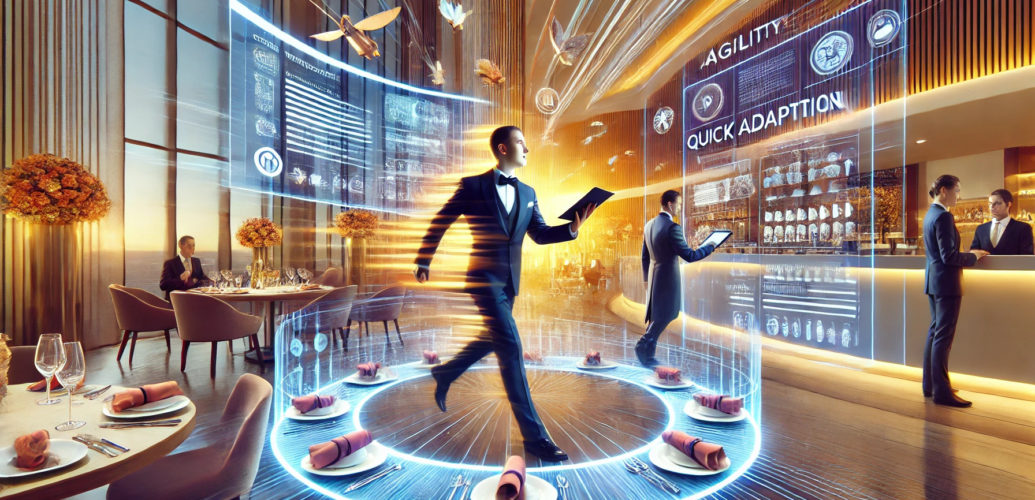Hospitality: Agility Before Agile Was a Thing
When people think of Agile, they often imagine tech teams, software sprints, and product development cycles. But if you want to see real agility in action, step into a luxury hotel, fine-dining restaurant, or high-end event venue. Hospitality professionals have been practicing rapid adaptability, cross-functional collaboration, and customer-centric problem-solving long before Agile became a buzzword.
Handling VIP Clients = Real-Time Adaptation
In the corporate world, project managers talk about stakeholder management—but hospitality professionals live it every second of their shift.
VIP guests—who often pay thousands per night—expect a seamless, personalized experience. Plans change at a moment’s notice:
- A billionaire decides to have an unscheduled private dinner for 20 guest in 30 minutes.
- A high-profile wedding is delayed because the bride’s favorite champagne isn’t in stock.
- A celebrity guest refuses to enter their room because the flowers are the wrong color.
There’s no “let’s discuss this in the next sprint.” There’s only act now, execute flawlessly, and always with a smile.
Cross-Functional Teams in Action
Agile frameworks love the concept of cross-functional teams—but in hospitality, they are a necessity. A successful guest experience depends on seamless coordination between multiple departments:
- Front Desk & Concierge handle the guest’s personal preferences.
- Kitchen & Service prepare last-minute VIP dining requests.
- Housekeeping & Maintenance ensure rooms are spotless and customized.
- Security adapts to high-profile guests who require discretion.
This isn’t just collaboration—it’s real-time orchestration at a level most businesses can’t even imagine.
Stakeholder Management on Steroids
Many business leaders struggle with aligning multiple stakeholders, but in hospitality, it’s part of daily life. From the executive chef to the sommelier, from the event planner to the general manager—everyone must be on the same page, even when working under extreme pressure.
And let’s not forget the most unpredictable stakeholder of all: the guest. Their expectations aren’t just high—they’re ever-changing. A guest might book a spa appointment for 5 PM, then demand to move it to 3 PM at the last minute, expecting staff to rearrange schedules seamlessly. This requires constant prioritization, communication, and execution—exactly what Agile promotes.
Always Smiling Under Pressure = The Ultimate Soft Skill
One of the toughest Agile principles to teach is handling stress while maintaining collaboration and positivity. Hospitality professionals are experts in this.
A five-star event manager can be dealing with a kitchen fire, an unhappy VIP, and a supplier delay—all at the same time—yet they’ll still greet the next guest with a warm smile as if everything is perfect. That’s real resilience, real leadership, and real agility.
Why Hospitality Pros Would Crush It in Agile Roles
If you’ve worked in high-end hospitality, you already have the core competencies of an Agile leader:
- Adaptability – Reacting instantly to unexpected changes.
- Customer Focus– Prioritizing guest experience at every touchpoint.
- Fast Decision-Making – Solving problems under pressure, with no time to overthink.
- Team Collaboration – Working across multiple functions, ensuring smooth execution.
- Crisis Management – Handling high-stakes issues with calmness and control.
Final Thoughts
For those who think hospitality is just about “carrying plates”—think again. Hospitality is a high-performance, high-pressure industry that demands agility at its finest. It’s time for the corporate world to recognize that some of the best Agile practitioners aren’t in tech—they’re in luxury hotels, Michelin-starred restaurants, and VIP event management teams.
So, next time you meet a hospitality professional, don’t ask if they can manage Agile. They’ve been doing it all along.
